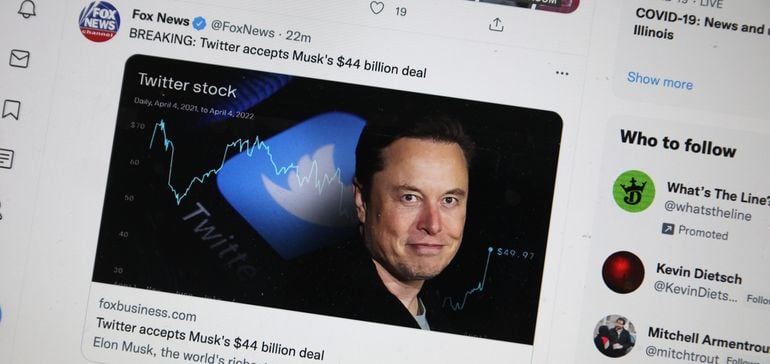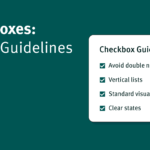Billionaire businessman Elon Musk has bet $44 billion — equal to about a quarter of his net worth — that he can make Twitter pay as a payments player.
Musk has told investors he can quintuple the social media platform’s revenue to $26.4 billion in six years, and a key part of that strategy is building a payments business that contributes $1.3 billion by then, according to a report from The New York Times.
Musk, who pursued the purchase for months before acquiring it on Oct. 27, also underscored the payments tack when he spoke with Twitter employees in June, saying he wanted to revamp Twitter to look more like WeChat, according to a report by The Verge. WeChat is the Chinese social media outlet that has a super app side, letting its users make payments and use other financial tools.
Musk is no stranger to the payments business. He was co-founder of a firm called X.com in 1999 that merged with another business to become PayPal. He has also taken a keen interest in 21st-century payments in the form of cryptocurrencies, doggedly backing a joke crypto called Dogecoin.
And of course, his other entrepreneurial moon-shots, namely car-maker Tesla and the aerospace company SpaceX, have made him the richest man in the world. They’ve also given him plenty of capital to invest in other enterprises.
Still, former top PayPal executives, who are also entrepreneurs and venture capitalists, said they doubt he can turn Twitter into a payments business. Others have tried to transform social media platforms into money-making payments businesses and failed, they argue, doubting Musk has the magic touch to make it happen.
“Twitter is Twitter, and Twitter is going to stay Twitter, and never be anything else,” said Jed Rice, CEO of digital bill payment company Aliaswire and a former PayPal senior director. Rice said he gives Musk 100-to-1 odds of successfully creating a Twitter payments business, even with three years to prove him wrong.
Social media habits die hard
The big barrier is that social media users who become accustomed to using a social media site for one particular purpose aren’t apt to adopt new payment features, Rice said. What’s more, companies that have created successful payments tools took many years to get them right and still have difficulty adding to them.
When Facebook tried to couple its messenger service with a peer-to-peer payment (P2P) tool, “it flopped spectacularly,” Rice said. “People said ‘This is dumb. Why would I do this? I’ll just Venmo you.” The disappearing-photo company Snapchat was similarly unsuccessful when it created Snapcash, he noted. That company ended the experiment in 2018.
Twitter already has “hundreds of millions of users with a cadence and culture and flow to it,” and changing their habits will be near impossible, Rice concluded.
Even P2P businesses like Venmo, which was acquired by PayPal in 2013 via Braintree, are still having a hard time expanding beyond their original mission. PayPal has struggled to segue Venmo to merchant uses.
PayPal itself has tried to add P2P and other payment functions, but they fell flat, said Rice, who was at PayPal from 2015 to 2019. “All the broader commerce possibilities just fall off,” he said.
Dickson Chu, a former executive at PayPal from 2004 to 2010 who helped build the business when it was part of the EBay online marketplace, has a similar perspective. Social media companies are hard-pressed to turn users who are simply social on a platform into people who are transacting on that platform, he explained.
“I’ve never seen anyone else do it, and I’ve failed at it twice,” said Chu, now CEO of the payments industry company Copper. In addition to failed efforts at PayPal, Chu took a stab at it when he was at Yahoo in the early aughts. Tech giant Microsoft couldn’t pull it off either after purchasing Skype, he noted.
Competition abounds
And today the competitive landscape has changed, with incumbents having spent years developing specialized payments tools from scratch instead of trying to bolt them onto a social media company. Rivals to any new business would include PayPal as well as Block’s consumer payments business Cash App, and the P2P business Zelle, backed by the biggest banks in the country.
“There are other people vying for that same audience,” Chu said, listing off competitors already offering a payments function. “They’ve got the most important thing — they’ve got consumers who feel safe about it.”
And creating a viable P2P payments tool is just the first step, Chu said. What all payments players want is to move into commerce, where consumers are using their tools for transactions, not just sending money to a friend.
“The real money is commerce, not person-to-person,” Chu said, explaining that Musk and people who want to monetize payments always target tools at consumer spending. He has to have that commerce angle “if he wants to make money.”
WeChat won’t work in the U.S.
As far as a WeChat business model, if Musk can pull it off, it won’t happen overnight, Chu said. He also notes that WeChat, the social media site, doesn’t have much to do with WeChat, the mobile payment and digital wallet service.
“Everybody says, ‘I want to be like WeChat,” but what’s happening in China isn’t what has happened in the U.S., Rice said.
WeChat came into existence in China before broadband, credit cards and computers were widely available, Rice explained. China and its consumers jumped from nothing to mobile, making the phone a replacement for cash and then they successfully built on it, he explained. By contrast, Westerners are still very much tied to cards as a means of payment. And now they’re being treated to an array of other digital options, Rice noted.
Sanjib Kalita, who is editor-in-chief of the fintech conference extravaganza Money 20/20, has more faith that Musk might be onto something. “He’s definitely done this in the past,” said Kalita, referencing Musk’s PayPal legacy.
Kalita points to the roadmap revealed by Musk’s conversation earlier this year with Twitter co-founder Jack Dorsey, who also co-founded and leads Block (formerly Square). In a text dialogue, reported on in September, Dorsey suggested that Twitter has to move beyond the staid social media advertising revenue model to an “open-sourced protocol.” That might allow for different types of payments streams, Kalita suggested.
And that’s where Musk’s crypto cred marries well with his PayPal experience to allow for blockchain-based payments potential, said Kalita, who is also the CEO and founder of the blockchain credit bureau Guppy.
Since Musk’s take-over last week, he has already overhauled Twitter’s C-suite, ordered operational changes and plans to shrink the company’s workforce. One analyst who has followed Twitter doesn’t rule out Musk’s payments plan succeeding, despite all the rivals.
“It’s competitive, but there’s a massive installed base and there are the resources to try and build something,” said Daniel Ives, a senior equity research analyst at Wedbush Securities. “That’s something they have, that others don’t.”






